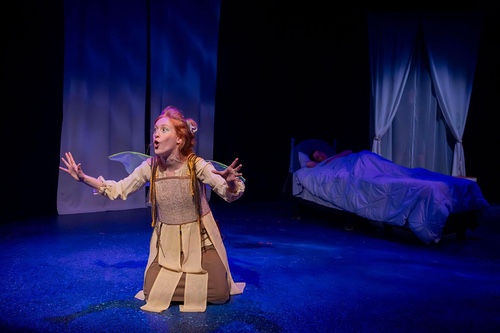
Peter Pan, lovingly known to many as the mischievous young boy who can fly and never grows up, is the cultural iconic symbol of neverending childhood.
Peter’s fictional life on the mythical island of Neverland, which is populated by fairies, pirates, indigenous people and mermaids, was formed in the imagination of J. M. Barrie, a Scottish novelist and playwright. Though he continued to write other literary works, Peter and his adventures overshadowed Barrie’s other works.
Pan has become so important that it has become a cottage industry. Besides The Little White Bird (1902, with chapters 13–18 published in Peter Pan in Kensington Gardens in 1906), and the West End stage play Peter Pan; or, the Boy Who Wouldn’t Grow Up (1904, which expanded into the 1911 novel Peter and Wendy), the character(s) have been featured in a variety of media and merchandise, both adapting and expanding on Barrie’s works. These include numerous films and a television series, and yes, Peter Pan and Wendy and Tinker Bell clothing, figurines, posters, Halloween costumes and jewelry, as well as books and magazines bannering the images of the beloved characters.
A statue of Peter Pan by the sculptor George Frampton was erected in Kensington Gardens in 1912 as a surprise to the children of London. Six other statues have been cast from the original mold and displayed around the world. In 2002, Peter Pan was featured on a series of UK postage stamps issued on the centenary of Barrie’s creation of the character.
As an explanation of why Dobama chose to do Peter/Wendy, Jeremy Bloom’s adaptation of the Barrie story, Nathan Motta, the theater’s artistic director and director of this production, states in his program notes, “As adults, it can be thought-provoking and rewarding to look back at the world of Neverland and find new meaning in the text.”
In response to those who may think that with all the new, thought-provoking scripts available, why would Dobama use a major segment of its season to produce yet another version of the overexposed tale, Motta states, “Peter/Wendy is meant to be whimsical, immersive and joyful for all ages, while lifting up some of the larger ideas for those who are interested in exploring the deeper parts of Neverland.”
The author describes Peter/Wendy as his “dream project” and explains, “My goal with it is to be most simple and sleek of all and tell the story as purely as it has ever been told, not skewed in any way, not towards an audience of children or with any particularly un-Barrie-ish take.” He elaborates, “It’s not some new crazy adaptation, but the story stripped down to its bare elements.”
Bloom’s adaptation is being produced for the first time on a professional stage in Cleveland.
Other stagings of the script have garnered such critical comments as, “The charming story may well feel, to some, like that nice, warm virtual hug very much needed during this harsh, cold winter,” and “Engagingly explores the questions of innocence, friendship, family and loss that have made the story a classic for more than a century.”

The local staging is blessed with a talented well-rounded gender-blind cast (Peter is played by she/they) Kelsey Angel Baehrens, Wendy by (she/her) Mikaela Ray and Tiger Lily by Diwe Augustin-Glave (they/them).
Other members of the fine assemblage include Charles Mayhew Miller (Lost Boy/Mermaid), Abigail Jarvis (Tinkerbell), Lara Mielcarek (Mrs. Darling/Hook), and Trey Gilpin (Mr. Darling/Smee).
Nathan Motta’s creativity can be seen all over the stage. This is not a conventional staging. Like the tale, the audience is forced to use their imaginations, clapping when they are asked whether they believe in fairies (in order to save Tinkerbell, who has taken poison in order to stop Peter from ingesting the liquid placed in a vial of “medicine” by evil Captain Hook), to see Peter and Wendy fly, and accept a blue laser as Tinker.
Production design by Jeremy Paul, sound design by Angie Hayes, costume design by Angelina Herrin, and props by Vanessa Cook all enhance the staging.
Capsule judgment: Yes, Peter/Wendy is yet another version of the tale of the boy who refuses to grow up, but it adds a creative element that other stagings don’t. On the intimate Dobama stage, it will involve and entrance you. It’s well-worth your time to think happy thoughts and let your inner child soar.
Performances are Thursdays through Sunday from December 6-29.
For tickets go Dobama.org or 216-932-3396
Next up at Dobama: The Pulitzer Prize winning THE HOT WING KING (January 24-February 16, 2025).